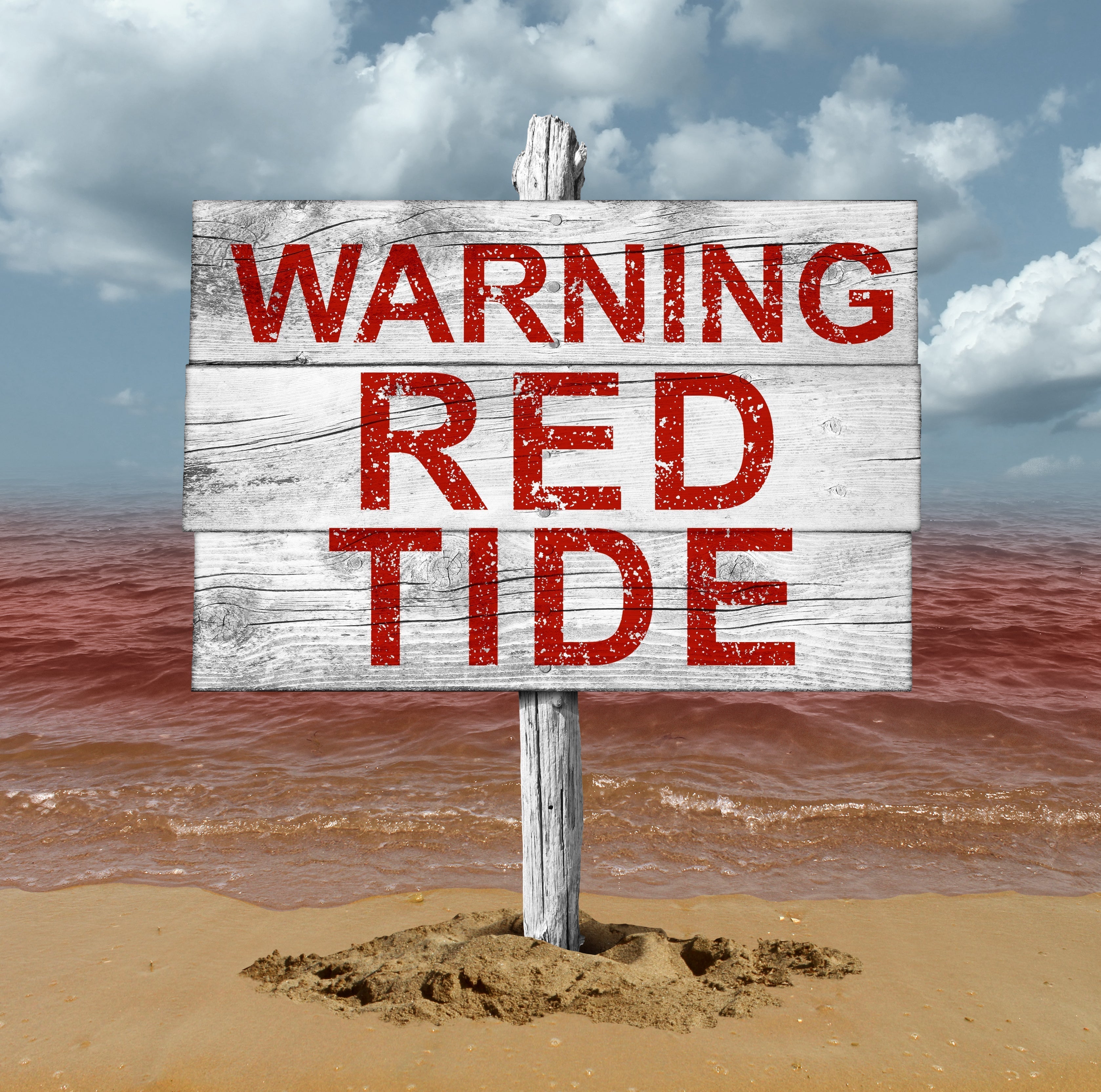We’ve all seen the news reports—fish washing up on shore, water turning murky red, and the dreaded words: red tide. But what exactly is red tide, and how does it affect anglers and boaters alike?
What is Red Tide?
Red tide is not an actual tidal event. Instead, it’s a natural phenomenon caused by a high concentration of microscopic marine algae in coastal waters. In Florida, the main culprit is a toxic algae called Karenia brevis. This algae contains pigments that give the water a reddish-brown color and, more importantly, releases toxins that can harm marine life and even humans.
What Causes Red Tide?
Several factors contribute to red tide blooms, including nutrient availability, water temperature, and salinity levels. Nutrient-rich waters—often found near river mouths—help these algae grow rapidly. Warmer waters and changes in ocean currents can also play a role, concentrating the algae in certain areas. One major cause of red tide is fertilizer runoff from agricultural lands, which washes into rivers and eventually reaches the ocean. These extra nutrients act like food for algae, allowing massive blooms to form that can cover hundreds of square miles.
How Does Red Tide Affect Marine Life?
The toxins produced by Karenia brevis can have severe effects on marine creatures. Fish kills are common during red tide events because the toxins attack their nervous systems, causing paralysis and suffocation. Other animals, including dolphins and sea turtles, can also be affected. In addition, large algae blooms reduce oxygen levels in the water, making it difficult for marine organisms to survive
Can You Fish During Red Tide?
While red tide can make fishing more difficult, it doesn’t always mean you have to cancel your trip. Here are some tips to help you work around it:
- Check Red Tide Reports: Websites and local agencies provide updates on red tide locations and severity.
- Fish Offshore: Red tide often affects nearshore waters more than offshore areas. Heading a few miles out can improve your chances of finding clear water.
- Look for Clean Water: Avoid areas where the water looks murky or discolored. Clear water usually means fewer toxins and more active fish.
- Choose Live Bait Wisely: Some baitfish are affected by red tide and may not survive in a live well. Catching bait in clean water or using artificial lures can be a better option.
Why Flushing Your Boat’s Motor is Essential
Red tide doesn’t just harm marine life—it can also affect your boat. The algae and toxins in the water can get into your motor’s cooling system, potentially leading to clogging and corrosion. After a day on the water, especially in areas affected by red tide, it’s critical to flush your motor thoroughly with fresh water.
Using the Flush Master system makes this process effortless. Simply connect it, press a button, and let it do the work. This ensures that all harmful debris, including red tide algae, is removed from your engine, preventing long-term damage.
Taking care of your boat is just as important as knowing where to fish. Keep your engine clean, and you’ll always be ready for your next trip—even when red tide tries to get in the way.
Flush your motor. Protect your boat. Enjoy more time on the water!



Share:
Flush Master Installation Guide
Flushmaster Quick Connects: What Makes Them Different